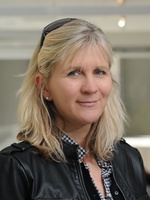|
Dr. Huzefa Rangwala (PI)
Professor
Computer Science |
 |
Dr. Rangwala’s research focuses on data mining and their applications in learning sciences, bioinformatics and bioengineering. Dr. Rangwala is the recipient of the 2013 NSF Early Career Faculty Award and the NSF BIGDATA award related to educational data mining. For his commitment to teaching and undergraduate research, the PI was awarded the University wide teaching award in 2014. Since Fall 2009, the PI has mentored nine undergraduate students. This included a female, majoring in bioengineering (Eastlake) and a male African-American minority student (Tolbert). Tolbert was funded under a NSF REU supplement with another project. Eastlake has co-authored a study related to ultrasound image mining. The PI has also advised 4 high school students. In Fall 2011, Tao (high school mentee) won a place in the Siemens Science Regional Finals. The PI, along with two other faculty members received a $20,000 award from GMU to integrate inquiry-based learning and undergraduate research into the curriculum. From Spring 2015 to Spring 2016 the PI mentored Mr. LaPierre (B.S. in CS student) who developed a scalable clustering algorithm for analyzing large volumes of DNA sequence data. Mr. LaPierre received an honorable mention for his application to the NSF Graduate Fellowship Research Program and is currently pursuing a Ph.D. at University of California, Los Angeles. In Summer 2016, the PI mentored four undergraduate students in their second year of study at GMU. Two of these recruited students were women. These students contributed to the design and development of new interfaces for presenting the output of the grade prediction and early warning systems. The PI will devote time and energy towards the administrative and logistical issues around running a collaborative and inter-disciplinary REU Site Program.
|
Dr. Antonios Anastasopoulos |
 |
| Dr. Carlotta Domeniconi Associate Professor Computer Science |
Dr. Domeniconi’s research interests include machine learning with applications in text mining, educational data mining, and bioinformatics. She is currently a co-PI (PI: Dr. Aditya Johri) on an NSF funded project (Collaborative Research: Deep Insights Anytime, Anywhere (DIA2)). DIA2 is currently designed as a powerful, web-based, knowledge-mining platform for non-experts in data mining to interactively explore the National Science Foundation awards portfolio. Dr. Domeniconi has supervised and successfully published papers with three undergraduate students: Gelman, Beckley, and Sweeney. They have analyzed a large online community of creators (Scratch Online), and modeled trajectory patterns that enabled them to quantitatively analyze informal learning.
|
Dr. Michael Eagle |
 |
Dr. Eagle's bio is forthcoming.
| Dr. Aditya Johri Professor Information Sciences and Technology |
 |
| Dr. Jana Kosecka Professor Computer Science |
 |
Jana Kosecka is a Professor at the Department of Computer Science, George Mason University. She obtained her Ph.D. in Computer Science from University of Pennsylvania. She was a postdoctoral fellow at the EECS Department at University of California, Berkeley. She is the recipient of David Marr's prize in Computer Vision and received the National Science Foundation CAREER Award. Jana is a former chair of IEEE Robotic Society’s Technical Committee on Computer Vision , Associate Editor of Transactions of IEE Robotics and Editor of Robotics and Automation Letters. Currently she is a Member of the Editorial Board of International Journal of Computer Vision. She has over 200 publications in refereed journals and conferences and is a co-author of a monograph titled Invitation to 3D vision: From Images to Geometric Models. She served as Program Chair of CVPR 2017, General Chair if ICCV 2023 and was on Associate Editor in Chief of IEEE Conference on Robotics and Automation. She is a senior member of IEEE. Her general research interests are in Computer Vision and Robotics and Artificial Intelligence. In particular she is interested 'seeing' systems engaged in autonomous tasks, acquisition of static and dynamic and semantic models of environments by means of visual sensing, object recognition and human-computer interaction.
| Dr. Thomas LaToza Associate Professor Computer Science |
 |
Dr. LaToza’s research is in developer experience design, combining software engineering and human-computer interaction to investigate how developers interact with code and designs new ways to build software. He has worked with several undergraduate students, which has sometimes resulted in publications with undergraduate co-authors. For example, Eric Chiquillo developed an initial debugging feature for a programming environment and Evelina Shabani worked on a study of architectural decision practices. He has served as a mentor in George Mason University’s Aspiring Scientists Summer Internship Program (ASSIP), serving as a mentor to 17 high school and undergraduate students. ASSIP offers an intensive 7.5-week program encompassing career development activities as well as hands-on experience working on a research project. As a mentor in the program, he runs an intensive two day "bootcamp" introduction to Developer Experience Design and mentors students as they participate on research projects.
| Dr. Jaime Lester Professor Higher Education |
 |
| Dr. Jessica Lin Associate Professor Computer Science |
 |
|
Dr. Kevin Moran |
 |
| Dr. Vivian Motti Assistant Professor Information Sciences and Technology |
 |
| Dr. Jill Nelson Associate Professor Electrical Engineering |
 |
|
Dr. Parth Pathak |
 |
Parth Pathak is an assistant professor in the Computer Science Department at George Mason University. Before joining George Mason University, he was a postdoctoral scholar at the University of California, Davis, and before that, he received his Ph.D. in Computer Science from North Carolina State University in 2012. He received his M.S. and Ph.D. degrees in Computer Science from North Carolina State University. His research interests include mobile and ubiquitous computing, energy-efficient sensing, Internet-of-Things systems, wireless networking, high-speed millimeter-wave wireless networks, and network analytics. He is a recipient of the Award for Excellence in Postdoctoral Research at the University of California, Davis in 2015. He has also received the Best Paper Award at IFIP Networking 2014 conference.
|
Dr. Amarda Shehu |
 |
Dr. Amarda Shehu is a Professor in the Department of Computer Science at George Mason University, where she is also a Co-Director of the Center for Advancing Human-Machine Partnerships (CAHMP), a Transdisciplinary Center for Advanced Study at George Mason University. Shehu obtained her Ph.D. from Rice University in 2008. Since joining Mason, Shehu's research has been at the interface of Artificial Intelligence and Machine Learning with information sciences, life science, and engineering. She has published over 130 technical papers with postdoctoral, graduate, undergraduate, and high-school students and has received various federal, state, and private awards over the years supporting and recognizing her research. Shehu is also the recipient of the 2018 Mason University Teaching Excellence Award, the 2014 Mason Emerging Researcher/Scholar/Creator Award, and the 2013 Mason OSCAR Undergraduate Mentor Excellence Award. She is particularly proud of awards recognizing research and scholarship by the undergraduate and high-school students she has mentored over the years. Shehu currently serves as Program Director of the Information Integration and Informatics Program at the National Science Foundation.
| Dr. Kim Sheridan Associate Professor Education Psychology |
 |
|
Dr. Mark Snyder (Co-PI)
Associate Chair
Term Associate Professor Computer Science |
 |
Dr. Snyder’s research background is in type theory and languages. He now teaches programming courses including introductory programming (in Python3), object-oriented programming (in Java), Computer Systems and Programming (in C and x86-64), and Comparative Programming Languages (sampling many languages, including Ruby, Lisp, and Haskell). These classes have upwards of 240 students in them. The department recognized him in his second year as the department’s outstanding teacher, and the university recognized him with the university-wide Teaching Excellence Award in 2016. He regularly attends the largest conference on computer science education (ACE SIGCSE) and is actively involved in developing the GMU undergraduate CS curriculum. Dr. Snyder also assists in hiring undergraduate students as teaching assistants, inspecting applications and mapping TAs to courses in need. In a regular semester, he manages a team of upwards of twelve graduate teaching assistants weekly as part of the larger introductory courses, where more than 700 students may be enrolled. Dr. Snyder has advised some undergraduate research projects, including (1) visualizing numeric sequences and (2) creating a rubric system to streamline and normalize the grading process. Dr. Snyder is also currently working on an online in-class student response system ("Pytania") geared towards computer science classrooms. Dr. Snyder will serve as the point of contact for the REU program and will manage the day-to-day operations of the summer program.
|
Dr. Lap-Fai (Craig) Yu |
 |
Lap-Fai (Craig) Yu is an Associate professor at the Computer Science Department at George Mason University, where he leads the Design Computing and Extended Reality (DCXR) group. He works on computer graphics, vision, human-computer interaction, and virtual reality, particularly in AI and data-driven techniques for computational design. He obtained his Ph.D. degree in Computer Science from UCLA with an Outstanding Recognition in Research Award. His research has been featured by New Scientist, the UCLA Headlines, and the IEEE Xplore Innovation Spotlight; and has won Best Paper Honorable Mention Awards at 3DV and CHI conferences. He received an NSF CRII award and an NSF CAREER award for his research in computational design and virtual reality. His lab is supported by the NSF, Microsoft, Adobe, Google, Nvidia, and Oracle.
